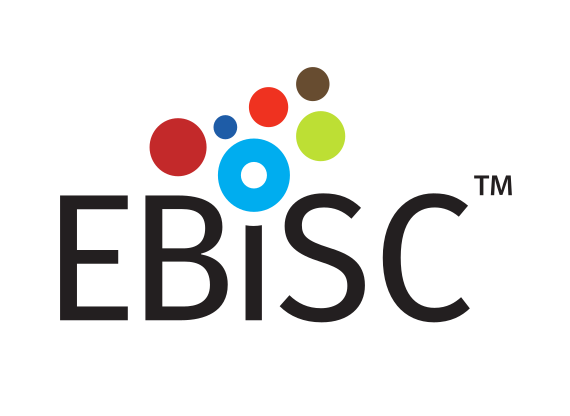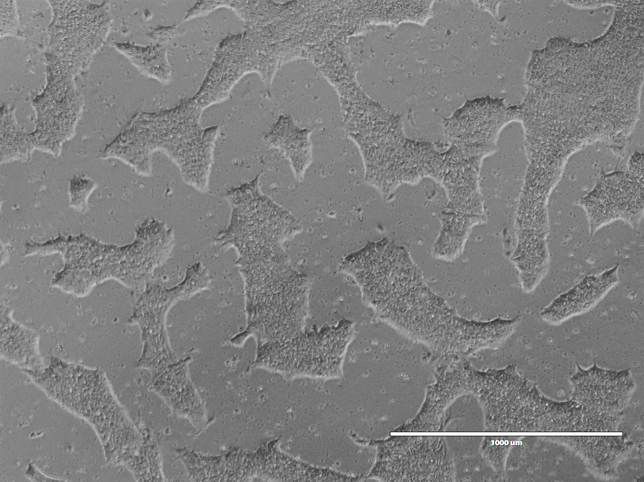If the cells you would like to access are currently listed as unavailable
or you are ordering from outside of Europe please get in touch via
Contact@EBiSC.org.
BIONi010-C-8
BIONi010-C Trem2 T66M, #Y5-80
Gene-edited iPSC line
A CLIP contains information about a cell line including any
specific third party obligations relating to, for example,
licensing obligations or the donor consent which affect the
use of the cell line.
The EBiSC Access and Use Agreement must be completed along with an individual
Cell Line Information Pack for each line. Complete the EAUA and send to Contact@EBiSC.org
for countersignature. The EAUA must be fully signed before proceeding with your order.
A batch specific Certificate of Analysis will be available to
download once you receive your EBiSC iPSC line.
General#
Cell Line |
|
| hPSCreg name | BIONi010-C-8 |
| Alternative name(s) |
BIONi010-C Trem2 T66M, #Y5-80
|
| Cell line type | Human induced pluripotent stem cell (hiPSC) |
| Similar lines |
BIONi010-C-25 (BIONi010-C heterozygous TREM2 KO) BIONi010-C-17 (BIONi010-C TREM2 KO) BIONi010-C-7 (BIONi010-C Trem2 R47H) BIONi010-C-3 (BIONi010-C ApoE KO #KO30 P30) BIONi010-C (BIONi010-C, K3P53) BIONi010-C-13 (BIONi010-C + NGN2 #I7-26) BIONi010-C-2 (BIONi010-C ApoE E3/E3 #H8 P32) BIONi010-C-15 (BIONi010-C +dox inducible NGN2-GFP) BIONi010-C-70 (BIONi010-C with an APOE 2/2 genotype with an additional, homozygous christchurch mutation) BIONi010-C-71 (BIONi010-C with an APOE 3/3 genotype with an additional, homozygous christchurch mutation) BIONi010-C-4 (BIONi010-C ApoE E4/E4 #B44 P27) BIONi010-C-5 (BIONi010-C CD33 E2del #N14 P26) BIONi010-C-6 (BIONi010-C ApoE E2/E2) BIONi010-C-9 (BIONi010-C CD33 KO) BIONi010-C-18 (BIONi010-C TBK1 KO) BIONi010-C-51 (BIONi010-C TNNI3-mCherry reporter) BIONi010-C-19 (BIONi010-C IKBKE KO) BIONi010-C-10 (HNF1AP291fsinsC +/- 54-5) BIONi010-C-11 (HNF1AP291fsinsC -/- 66-1) BIONi010-C-12 (HNF4ApR309C -/- 2-4) BIONi010-C-52 (BIONi010-C with an APOE 2/2 genotype (with two functional alleles in contrast to BIONi010-C-6)) BIONi010-C-53 (BIONi010-C with an APOE 3/3 genotype (with two functional alleles in contrast to BIONi010-C-2)) BIONi010-C-55 (BIONi010-C TNNI3-mCherry/TNNI1-EGFP dual reporter cl. 74) BIONi010-C-24 (BIONi010-C Dox a-syn) BIONi010-A (K1P53) BIONi010-B (K2P53, BIONi010-B) |
| Notes | No larger chromosomal aberrations to be reported. Chr22: 1,4Mbp duplication in q11.23 |
Provider |
|
| Depositor | Bioneer (BION) |
| Owner | Bioneer (BSC) |
| Distributors |
EBiSC
|
External Databases |
|
| hPSCreg | BIONi010-C-8 |
| BioSamples | SAMEA4454011 |
| Cellosaurus | CVCL_LE09 |
| Wikidata | Q54796782 |
General Information |
|
| This EBiSC line can be used for: |
Yes
Research use: allowed
Clinical use: no
Commercial use: no
|
| Subclone of | |
Donor Information#
General Donor Information |
|
| Sex | male |
| Ethnicity | Black or African-American |
Phenotype and Disease related information (Donor) |
|
| Diseases | No disease was diagnosed.
|
| Disease associated phenotypes | no phenotypes |
Karyotyping (Donor) |
|
| Has the donor karyotype been analysed? |
Yes
46, XY
Karyotyping method:
G-Banding
|
Other Genotyping (Donor) |
|
| Is there genome-wide genotyping or functional data available? |
No
|
Donor Relations |
|
| Other cell lines of this donor | |
External Databases (Donor) |
|
| BioSamples | SAMEA3105780 |
hIPSC Derivation#
General |
|
|
The source cell information can be found in the parental cell line
BIONi010-C.
|
|
Reprogramming method |
|
| Vector type | Non-integrating |
| Vector | Episomal |
| Genes | |
| Is reprogramming vector detectable? |
No |
| Methods used |
PCR
|
Vector free reprogramming |
|
Other |
|
| Derived under xeno-free conditions |
No |
| Derived under GMP? |
No |
| Available as clinical grade? |
No |
Culture Conditions#
The following are the depositor culture conditions, they do not refer to any specific batch.
| Surface coating | Matrigel/Geltrex |
| Feeder cells |
No |
| Passage method |
Enzyme-free cell dissociation
EDTA
|
| O2 Concentration | 18 % |
| CO2 Concentration | 5 % |
| Medium |
Essential 8™
|
| Has Rock inhibitor (Y27632) been used at passage previously with this cell line? | Yes |
| Has Rock inhibitor (Y27632) been used at cryo previously with this cell line? | No |
| Has Rock inhibitor (Y27632) been used at thaw previously with this cell line? | No |
Characterisation#
Differentiation Potency
Microbiology / Virus Screening |
|
| HIV 1 | Negative |
| HIV 2 | Negative |
| Hepatitis B | Negative |
| Hepatitis C | Negative |
| Mycoplasma | Negative |
Sterility |
|
| Inoculation for microbiological growth | No Contaminants Detected |
| Mycoplasma | Not Detected |
| Viability | Viable post-cryopreservation |
Genotyping#
Karyotyping (Cell Line) |
|
| Has the cell line karyotype been analysed? |
Yes
|
Other Genotyping (Cell Line) |
|
| Is there genome-wide genotyping or functional data available? |
Yes
Whole genome sequencing
https://ega-archive.org/studies/EGAS00001002755 This cell line has undergone WGS using the Illumina HiSeq X platform at 30x coverage. Fastq files are stored at the European Genome Archive, users can apply for access to this data by submitting an application form to the EBiSC Data Access Committee https://ega-archive.org/dacs/EGAC00001000768 |
Genetic Modification#
| Disease/phenotype related modifications |
Synonyms
Genetic modifications
TREM2 (target)Isogenic modification
6p21.1
NM_018965.3:c.197C>T
NP_061838.1:p.Thr66Met
Homozygous
A homozygous T66M (rs201258663) mutation was interted into the TREM2 locus of BIONi010-C
Mutated
|

